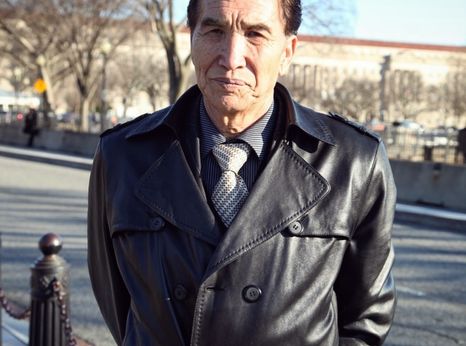70-year-old Uyghur editor held incommunicado

Qurban Mamut is a writer, journalist and former editor-in-chief of Xinjiang Civilization, a state-controlled Uyghur-language journal promotes Uyghur culture and history. He worked for Xinjiang Civilization from 1985 until he retired as editor-in-chief in 2011.
Qurban Mamut’s son, Bahram Sintash, is a citizen of the United States, where he lives with his wife and child and works for Radio Free Asia. Qurban Mamut visited his son in the US in February 2017, and his son believes this visit may be the reason for his father’s detention. Amnesty has documented many cases in which individuals in Xinjiang were sent for re-education because of overseas travel or residence or relatives living in foreign countries.
Bahram Sintash is now a Digital Content Producer at Radio Free Asia (RFA). Its Uyghur Service is one of the only outlets providing independent news about the situation in Xinjiang. Amnesty International has documented how family members of RFA journalists have been targeted by the Chinese authorities and sent to “transformation-through-education” facilities. For example, approximately 20 of Gulchehra Hoja’s relatives have been targeted and detained due to her work as a journalist for RFA’s Uyghur Service.
Xinjiang is one of the most ethnically diverse regions in China. More than half of the region’s population of 22 million people belong to mostly Turkic and predominantly Muslim ethnic groups, including Uyghurs (around 11.3 million), Kazakhs (around 1.6 million) and other populations whose languages, cultures and ways of life vary distinctly from those of the Han who are the majority in “interior” China.
In March 2017, the Xinjiang government enacted the “De-extremification Regulation” that identifies and prohibits a wide range of behaviours labelled “extremist”, such as “spreading extremist thought”, denigrating or refusing to watch public radio and TV programmes, wearing burkas, having an “abnormal” beard, resisting national policies, and publishing, downloading, storing, or reading articles, publications, or audio-visual materials containing “extremist content”. The regulation also set up a “responsibility system” for government cadres for “anti-extremism” work and established annual reviews of their performance.
It is estimated that up to a million Uyghurs, Kazakhs and other predominantly Muslim people have been held in the “transformation-through-education” centres. The Chinese authorities had denied the existence of such facilities until October 2018, when they began describing them as voluntary, free “vocational training” centres. They claim that the objective of this vocational training is to provide people with technical and vocational education to enable them to find jobs and become “useful” citizens. China’s explanation, however, contradicts reports of beatings, food deprivation and solitary confinement that have been collected from former detainees.
China has rejected calls from the international community, including Amnesty, to allow independent experts unrestricted access to Xinjiang. Instead, China has made efforts to silence criticism by inviting delegations from different countries to visit Xinjiang for carefully orchestrated and closely monitored tours.